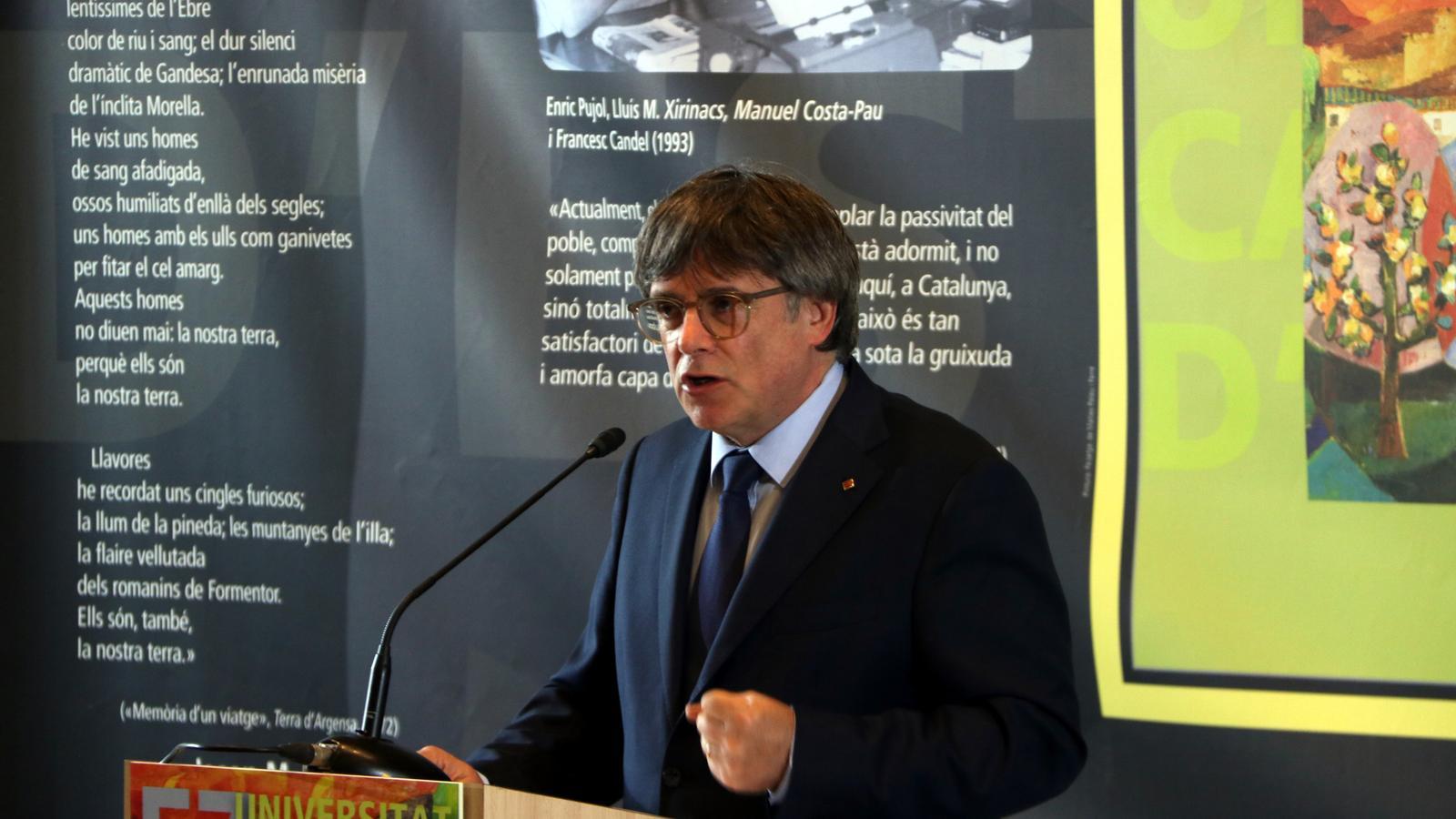Juntos downplays Puigdemont's warning to Sánchez: "It's not an ultimatum."
La Moncloa frames the Junts leader's warning in the internal dispute with ERC just after the agreement to forgive the debt.

Barcelona / Madrid"Stability must be achieved periodically. And, in the autumn, perhaps things will happen that haven't happened until now, because we've already given ourselves enough time," warned Carles Puigdemont yesterday from the Catalan Summer University (UCE) in Prada. The leader of Junts has not hidden his displeasure with the PSOE for months over the failure to fulfill the commitments they reached in exchange for the investiture of Pedro Sánchez. The official status of Catalan in the EU, the transfer of immigration powers, and the implementation of the amnesty are the three main agendas that the junts members are demanding that the Spanish government do what is necessary to move forward. Despite shelvingthe demand for the question of confidence with which he flirted at the beginning of the yearSince the outbreak of the Cerdán case, the Socialists have been issuing warnings to the Socialists about the direction of the legislature.
Sources from the pro-independence party, however, downplay the former president's ultimatum. "It's not an ultimatum, it's a new warning," they say. In this sense, they reiterate that "the agreements have not been fulfilled" and, using a football analogy, denounce the fact that "an extension" has been reached, but they make it clear that they are not in a position to break the rules, which would cause the Spanish president to lose his parliamentary majority in Congress.
The Spanish government has declined to comment on Puigdemont's remarks, aware that they do not benefit the relationship, fuel the potential threat, or diminish it. However, the Spanish government has not expressed concern and is confident that work with Junts will continue when the political cycle resumes. The former president was cryptic with his warning that "things will happen that haven't happened until now," and, in fact, the Spanish government is also unclear about what he was referring to specifically.
Puigdemont's warning came just hours after it was announced that the Council of Ministers will approve debt forgiveness in early September, a pact with ERC. Therefore, the Spanish government frames Puigdemont's remarks within the internal dispute between Junts and the Republicans. The party represented by Míriam Nogueras in Madrid continues to demand compliance with its commitments, such as the Catalan commitment to the EU—on this point, both sides acknowledge that the Spanish government is doing what it can—and the transfer of powers over immigration, which is still stuck in parliamentary proceedings in Congress. From the Moncloa, they are hopeful that they will eventually reach a balance between what is reasonable, what is possible, and the maximum demand that Junts would like.
ERC unleashes debt forgiveness and budgets
ERC also warned this Wednesday that the approval of the debt forgiveness for the regional liquidity fund (FLA) "has nothing to do" with the budget negotiations. "It is neither a necessary nor sufficient step, because it is a commitment that already existed," argued ERC leader Oriol Junqueras in an interview this Wednesday on Catalunya Ràdio. Junqueras again placed the agreement for the one-off financing as a condition for approving the state accounts and called on the Spanish government to "deliver."
When asked about the Minister of Finance, Maria Jesús Montero, the ERC leader lamented that her "dual role" as minister and as the PSOE candidate for Andalusia "conditions her decisions" regarding financing. But the Spanish vice president already warned on Monday that for the time being she does not intend to leave the ministry. In fact, he didn't even set a date for when he'll leave the Cabinet—he said he'll be there as long as "necessary"—and, in any case, he asked to discuss it when the Andalusian president calls elections. The expectation is that they will be next year. In this regard, the Moncloa government emphasizes that Montero has Pedro Sánchez's utmost confidence.
